ISLAMABAD: President of Pakistan on Sunday said that Pakistan reiterated its moral, diplomatic and political support for the ‘cause of the people of Indian occupied Jammu and Kashmir’.
“27th October marks one of the darkest chapters of the Jammu & Kashmir history. On this day, seven decades ago, Indian forces landed in Srinagar to occupy, subjugate, oppress and terrorize the innocent people of Indian occupied Jammu and Kashmir (IoK) in blatant violation of international law,” President of Pakistan Dr. Arif Alvi said in a statement.
The statement added that the United Nations Security Council through several of its resolutions, has validated the Kashmiris’ right to decide their future through a fair and impartial plebiscite.
“Despite its commitment to the international community to enforce these resolutions, India has embarked on a path of punitive suppression and pathological genocide that continues to this day,” President Alvi said
Pakistan’s President said that India does not realize that it is “impossible to crush the spirit of a people once they commit to the achievement of their freedom” and added “Pakistan strongly supports the OHCHR (UN High Commissioner for Human Rights) Report’s recommendation to constitute a Commission of Inquiry (COI) to analyze the human rights situation in Indian occupied Jammu & Kashmir.”
On Friday, the Interior Ministry on Friday issued a notification to this effect, urging people to wear black armbands and observe a minute-long silence at 1pm on Saturday.
The Kashmiris in the Indian administered Kashmir went on a general strike this week to bring international attention to what they say are Indian killings and brutalities against innocent civilians in the region. Prior to that, the valley witnessed gunbattles between security personnel and armed inhabitants of the area which resulted in several casualties.
Indian forces have been accused of using explosives in densely-populated areas, as some residents blame them for detonating bombs in areas where they suspect the presence of armed rebels. It may be recalled that the United Nations’ High Commissioner for Human Rights launched a first-of-its-kind report on violence perpetrated by Indian forces in Kashmir, in June this year.
The report mentioned an excessive use of force against innocent civilians along with other brutal tactics – as such sexual violence and enforced disappearances – which were frequently being used to break the will of Kashmiris. While India dismissed the report as “tendentious and motivated”, Pakistan has undertaken several diplomatic initiatives to bring international attention to the Indian oppression of the region.
Pakistan’s army chief, General Qamar Javed Bajwa, while visiting troops at the Line of Control on Thursday, described the Kashmir dispute between India and Pakistan as an unfinished business of partition of 1947.
The Kashmiris have been uprising against Indian forces since 1989. According to some estimates, about 70,000 people have lost their lives since then. The residents of the valley say they will to continue to 'struggle for their self-determination.'
Pakistan observes ‘Kashmir Black Day’
Pakistan observes ‘Kashmir Black Day’

- Pakistan said it reiterates its moral, diplomatic and political support for Kashmir
- Army chief described the Kashmir dispute between India and Pakistan as an unfinished business of partition of 1947
Pakistani and Saudi finance chiefs discuss boosting strategic ties ahead of AlUla conference

- Muhammad Aurangzeb brings up enhanced bilateral trade, investments and collaboration with his counterpart
- The ministers emphasize the need for continued economic dialogue, increased cooperation through joint initiatives
KARACHI: Saudi Arabia and Pakistan on Saturday discussed unlocking the full potential of their strategic relationship, as the finance chiefs of both countries met ahead of the Emerging Markets Conference in AlUla, Saudi Arabia, according to an official statement.
Pakistan’s Finance Minister Muhammad Aurangzeb arrived in the Kingdom to attend the two-day conference, which begins on Sunday, at the invitation of his Saudi counterpart Mohammed Al-Jadaan.
The annual economic policy forum is organized by the Saudi finance ministry in collaboration with the International Monetary Fund (IMF) regional office in Riyadh. The event will bring together emerging market finance ministers, central bank governors, policymakers, public and private sector leaders, international institutions and academics.
“The meeting [between the two finance chiefs] underscored a shared commitment to build bridges of economic cooperation and advance mutual prosperity,” Pakistan’s finance ministry said in a statement after Aurangzeb’s interaction with Al-Jadaan.
“The discussions highlighted opportunities for enhancing bilateral trade, investments and financial collaboration, with both ministers expressing their dedication to unlocking the full potential of their countries’ strategic partnership,” it added.
Pakistan is navigating a fragile economic recovery under a $7 billion IMF loan program secured in September 2024, after implementing austerity measures and policy reforms to avert a sovereign default in 2023.
To facilitate Pakistan’s economic recovery, Saudi Arabia signed 34 memorandums of understanding (MoUs) worth $2.8 billion last October to boost private sector investment in key areas, including energy, infrastructure and technology.
During their meeting, the two ministers explored avenues for collaboration in infrastructure, energy, technology and finance, emphasizing the need for continued dialogue and joint initiatives to facilitate investment flows and economic opportunities that could benefit the broader region.
According to an earlier statement by Pakistan’s finance ministry, Aurangzeb is scheduled to participate in a high-level panel discussion titled “The Path to Emergent Markets,” hosted by IMF Managing Director Kristalina Georgieva.
The conference will feature nine sessions, with 200 participants and 36 speakers, focusing on economic resilience, financial policies for emerging markets and global economic challenges.
The discussions come at a time when the world economy is facing persistent shocks, trade tensions between major world powers, geopolitical instability and tight financial conditions.
“The conference will provide a unique platform for world leaders to discuss and analyze domestic, regional and global economic conditions and developments and to exchange ideas on solutions to global challenges,” the Pakistani finance ministry added.
Pakistan, Saudi military officials agree to deepen defense and security ties

- General Sahir Shamshad Mirza is in Saudi Arabia for the Joint Military Cooperation Committee meeting
- His discussions with Saudi officials focused on military exchange programs, ongoing training initiatives
KARACHI: Senior Pakistani and Saudi military officials have agreed to further consolidate bilateral defense and security cooperation during their meetings in the Kingdom, the Inter-Services Public Relations (ISPR) said in a statement on Saturday.
Pakistan’s Chairman Joint Chiefs of Staff Committee General Sahir Shamshad Mirza is currently visiting Saudi Arabia to attend the 8th round of the Pakistan-Saudi Joint Military Cooperation Committee (JMCC) meeting.
The Kingdom remains one of Pakistan’s key defense and security allies, with ties encompassing a range of activities, including counterterrorism collaboration.
“Both sides reviewed the ongoing cooperation between Armed Forces of Pakistan and Saudi Arabia, focusing on mutual exchange programs, training initiatives and other defense-related activities,” the ISPR said.
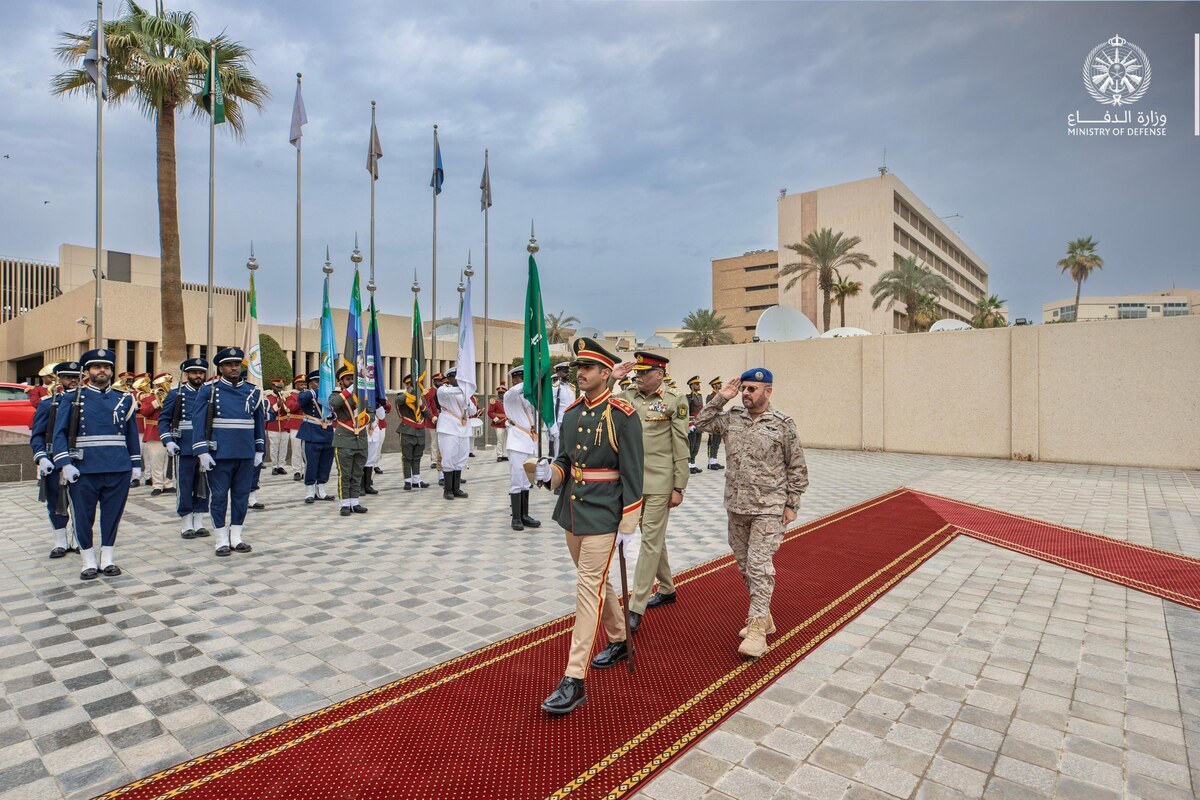
“The military leadership reaffirmed their commitment for further strengthening existing defense and security cooperation between the two brotherly countries,” it added.
During his visit, General Mirza held meetings with Major General Talal Bin Abdullah Al-Otaibi, Assistant Minister of Defense, and General Fayyadh bin Hamed Al-Ruwaili, Chief of General Staff of Saudi Arabia.
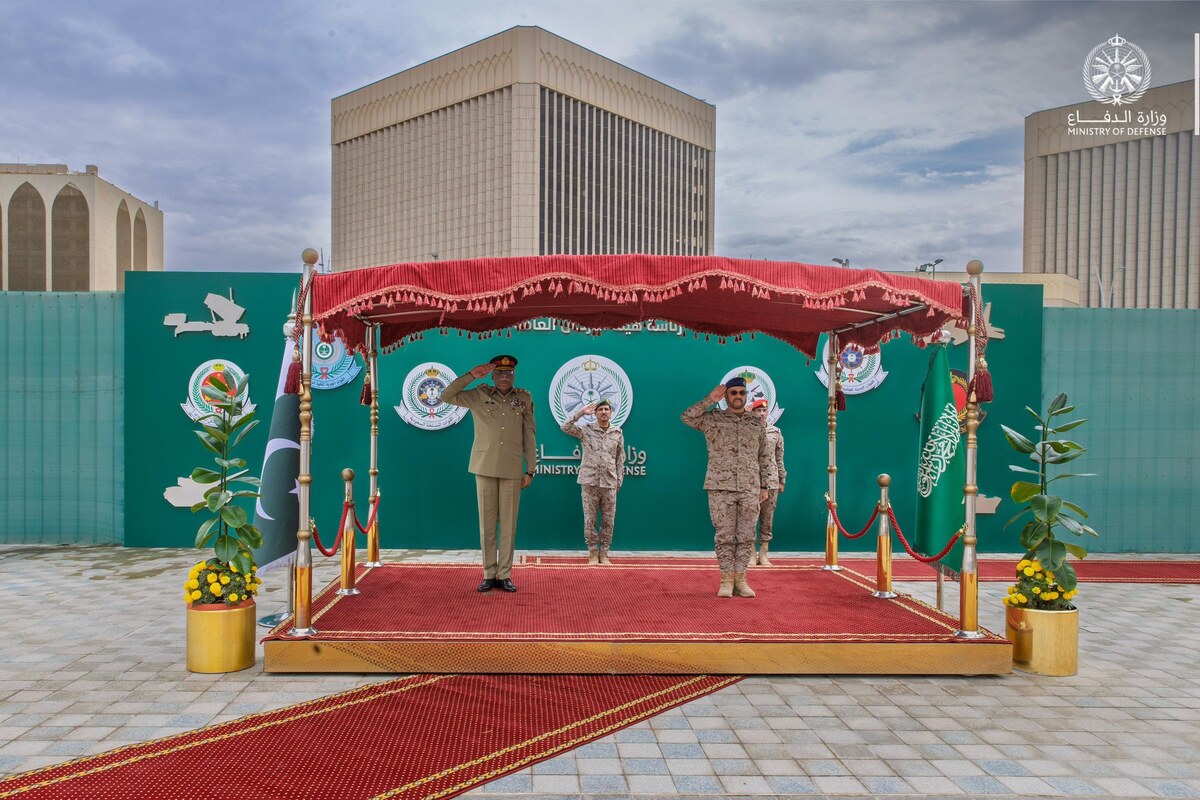
Their discussions covered strategic and security issues, the evolving regional environment and bilateral defense collaboration.
The JMCC meeting, which Mirza and Al-Ruwaili co-chaired, serves as a key platform for defense dialogue and coordination between the two nations.
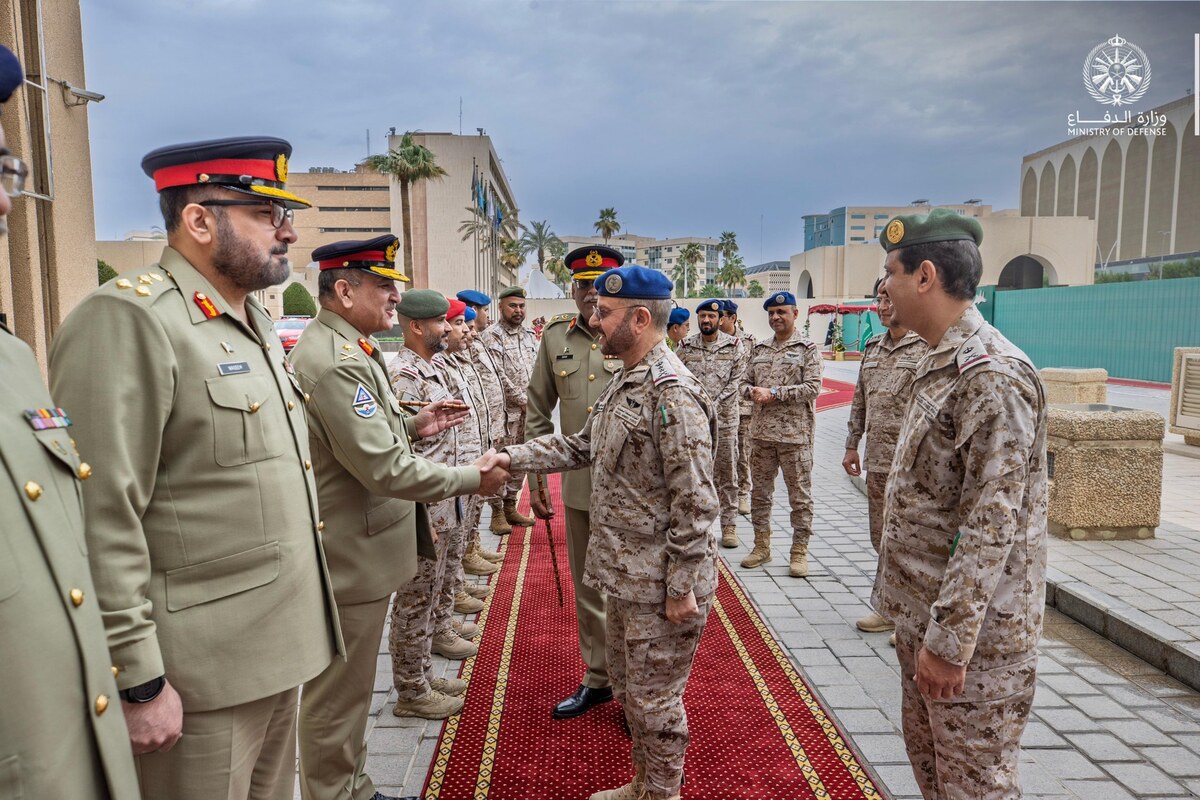
The ISPR said Saudi military officials praised the professionalism of Pakistan’s armed forces and acknowledged their sacrifices in the fight against militancy.
Upon his arrival at the Armed Forces Headquarters in Saudi Arabia, General Mirza was given a Guard of Honor by a smartly turned-out military contingent, reflecting the strong defense ties between the two nations.
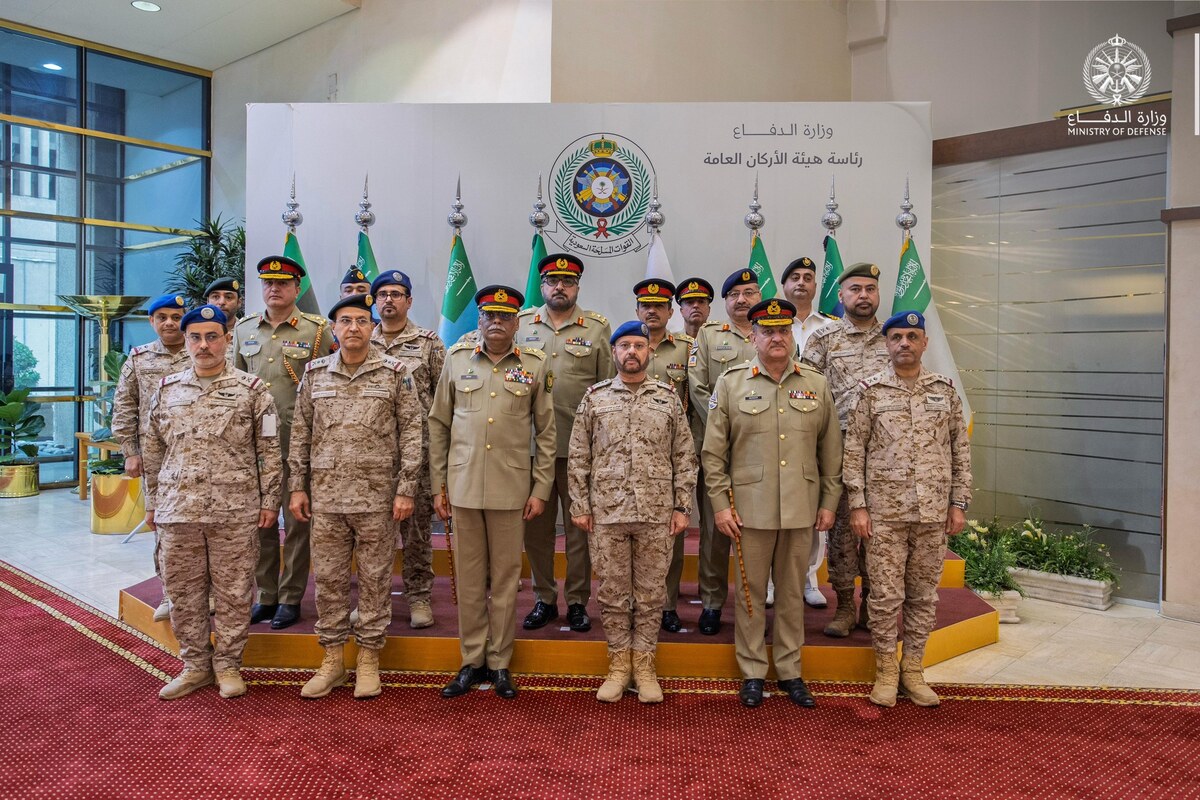
Pakistan’s interior minister calls for global unity against militant violence in meeting with US envoy

- Mohsin Naqvi expresses optimism that Pakistan-US ties will strengthen under President Donald Trump
- His recent meetings with US lawmakers focused on combating militancy, strengthening bilateral ties
ISLAMABAD: Pakistan’s Interior Minister Mohsin Naqvi on Saturday described militant violence as an international challenge, calling for global solidarity to combat the threat during a meeting with US Chargé d’Affaires Natalie Baker.
Baker assumed the role at the US Embassy in Islamabad in January, following the departure of Ambassador Donald Blome. The position is a temporary appointment, with her responsibilities including engagement with Pakistani officials on bilateral issues until a new envoy is confirmed.
“Terrorism is an international issue, and the global community must work together to address it,” Naqvi said during the meeting.
He also recalled his recent official visit to the United States, which took place earlier this month. The trip focused on bilateral cooperation, counterterrorism strategies and security concerns.
“The meetings with US Congress members were extremely positive,” the minister said. “Discussions focused on developing a joint strategy to combat terrorism and further strengthening bilateral relations.”
Pakistan and the US have historically cooperated on counterterrorism efforts, with both sides benefiting from intelligence-sharing support.
More recently, the US has repeatedly expressed support for Pakistan’s security concerns, particularly as Islamabad blames rising militant violence on cross-border attacks from Afghanistan — an allegation denied by authorities in Kabul.
Naqvi expressed optimism that Pakistan-US relations would strengthen under President Donald Trump’s administration.
He also invited Baker to attend Islamabad’s upcoming spring festival celebrations.
Pakistan army says officer, three soldiers killed in anti-militant operations in northwest

- Security forces killed 15 Pakistani Taliban in two separate operations in Dera Ismail Khan and North Waziristan
- The militants were involved in numerous violet activities in the area and were wanted by law enforcement agencies
ISLAMABAD: An officer and three soldiers were killed on Saturday as security forces launched two separate operations against militants in Pakistan’s northwest, the military’s media wing, Inter-Services Public Relations (ISPR), said in a statement.
The intelligence-based operations took place in Hathala, Dera Ismail Khan District, and Miran Shah, North Waziristan District. Both the areas, along with the rest of Khyber Pakhtunkhwa province, have seen a surge in militant violence since the collapse of a fragile ceasefire agreement between the government and the banned Tehreek-e-Taliban Pakistan (TTP) in late 2022.
Pakistan brands TTP fighters as “khwarij,” a historical reference to an extremist sect in early Islam known for rebelling against authority, declaring other Muslims as apostates, and justifying their killing.
“An intelligence-based operation was conducted by the Security Forces in general area Hathala, Dera Ismail Khan District, on reported presence of Khwarij,” the ISPR said. “During the conduct of operation, own troops effectively engaged the khwarij location and resultantly, nine khwarij including Kharji ring leaders HVT [high-value targets] Farman [alias] Saqib, Kharji Amanullah [alias] Toori, Kharji Saeed [alias] Liaqat, and Kharji Bilal were sent to hell.”
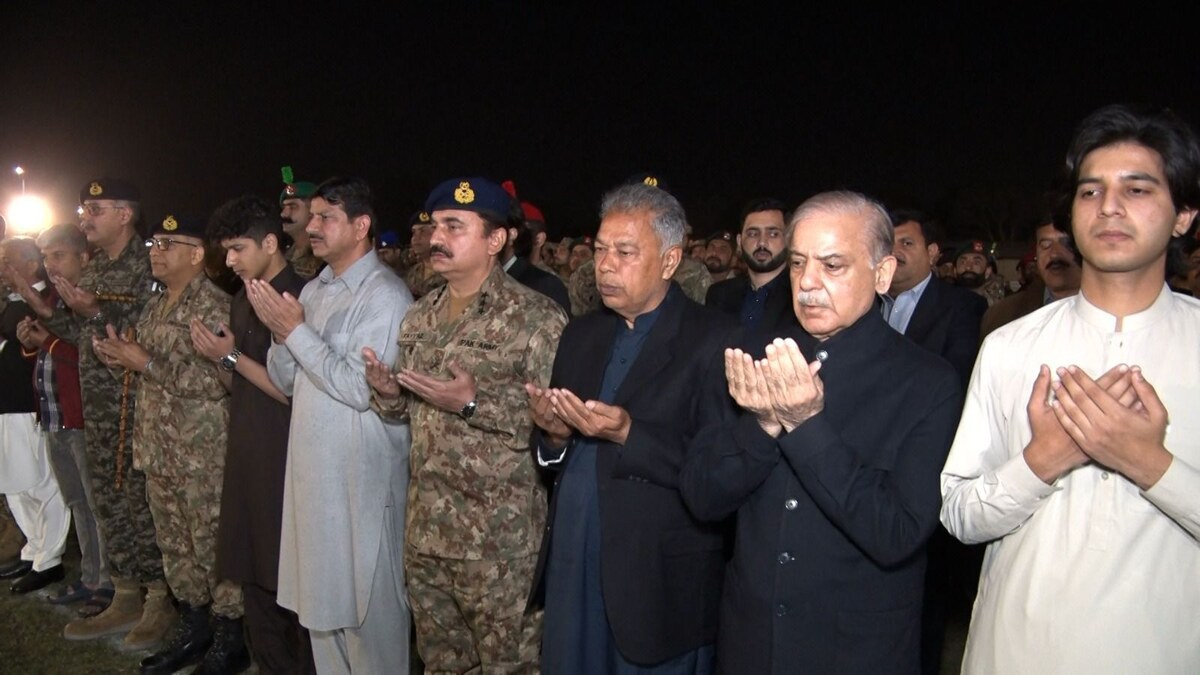
The statement added all these militants were involved in numerous violet activities and were wanted by law enforcement agencies.
“In another operation conducted in general area Miran Shah, North Waziristan District, six khwarij were effectively neutralized by the security forces,” the statement continued.
“However, during intense fire exchange, Lt. Muhammad Hassaan Arshaf (age: 21 years, resident of District Lahore) leading his troops from the front, fought gallantly and embraced Shahadat along with his three men,” it added.
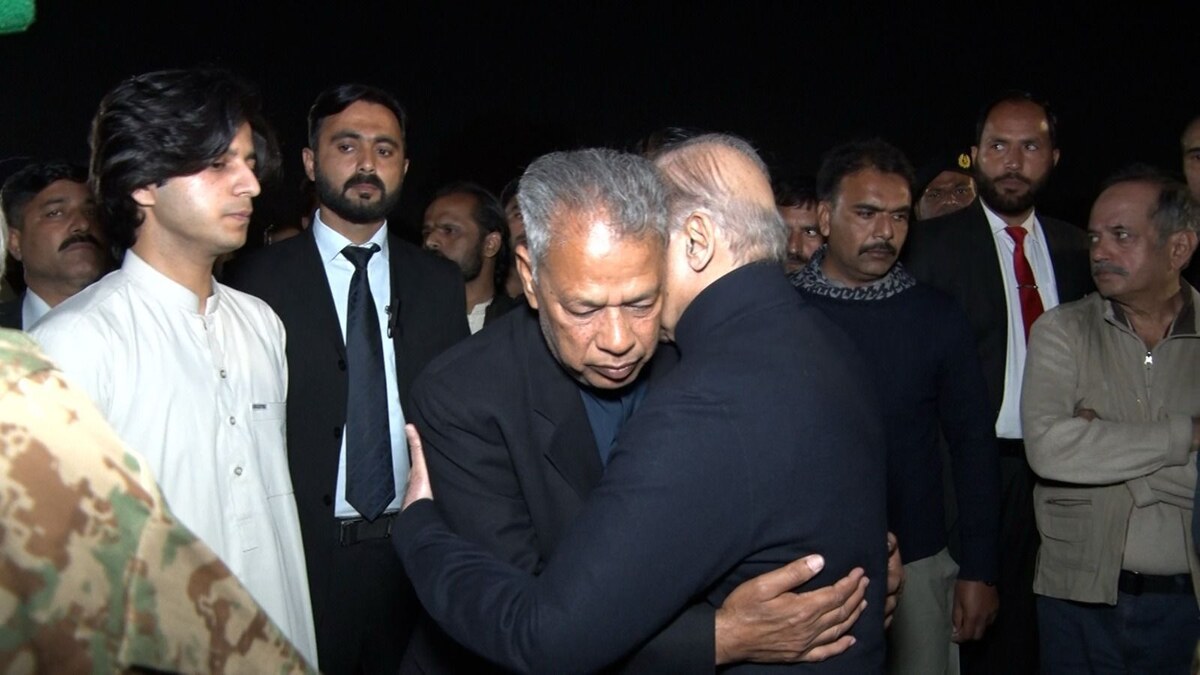
The military said sanitization operations were underway to clear any remaining militants, reiterating its determination to eliminate militancy from the region.
The Pakistani military has intensified operations against TTP hideouts, vowing to wipe out the group, which Islamabad accuses of carrying out cross-border attacks from Afghanistan. The Taliban-led government in Kabul, however, denies providing safe havens to Pakistani militants.
Pakistan Senate passes tougher laws to curb human smuggling, illegal migration

- Hundreds of Pakistanis have lost lives in boat capsizing incidents since 2023, while trying to reach Europe
- Despite intense crackdown leading to arrests, such tragedies continue, necessitating more stringent laws
KARACHI: Pakistan’s Senate on Friday approved amendments to three key laws aimed at combating human trafficking and illegal migration, following a series of deadly migrant boat tragedies that have claimed hundreds of lives.
The legislation— covering human trafficking, migrant smuggling and emigration— seeks to strengthen penalties for offenders, including those involved in smuggling young girls and trafficking beggars to Gulf states.
Pakistan has intensified its crackdown on human smugglers after multiple boat tragedies. In January, the Federal Investigation Agency (FIA) issued Interpol red notices for 20 suspected foreign-based traffickers, though migrant deaths continue as people attempt to cross treacherous waters on rickety boats to reach European shores.
The three bills, unanimously passed after clearance by the relevant Senate standing committees, aim to further strengthen the legal framework to tackle the crisis. The Prevention of Trafficking in Persons (Amendment) Bill expands the definition of trafficking to include organized begging, following concerns raised by Pakistan’s diplomatic missions in the Gulf Cooperation Council (GCC) states, Iraq and Malaysia.
“The agents and gangs who are involved in this practice easily dodge prosecution as beggary is not a crime in any law entrusted to FIA,” reads the statement of objects and reasons of the bill, which has amended multiple sections of a 2018 law to prevent human trafficking. “The sensitivity of issue demands urgent need of making beggary a crime.”
In the past, several Pakistanis reportedly traveled abroad for Hajj, Umrah or personal visits but engaged in begging, tarnishing the country’s image.
The bill also increases penalties for traffickers, raising prison sentences from a minimum of three years to up to 14 years for offenses involving women and children. Fines for trafficking crimes now range from Rs1 million ($3,581) to Rs2 million ($7,162).
Similarly, the Prevention of Smuggling of Migrants (Amendment) Bill stiffens penalties for offenders, increasing the maximum prison term from five years to 10 years and raising fines from Rs1 million to Rs10 million ($35,810).
It also targets individuals who harbor undocumented foreigners in Pakistan, increasing their prison term from three years to five years and doubling fines to Rs2 million.
The third approved bill revises the 1979 Emigration Ordinance to eliminate leniency for human smugglers. Courts will no longer have the discretion to impose only fines on those found guilty, making jail sentences mandatory for offenders.
“To curb the menace of unlawful emigration and create deterrence among perpetrators and prevent repetition of offenses, it is inevitable to amend the Court’s discretion, which currently has the option to award either imprisonment or a fine,” the bill said.
The three bills come at a time when two migrant boat tragedies involving dozens of Pakistanis — one near Morocco and the other off the coast of Libya — have been reported since the beginning of the year. Prior to these incidents, an overcrowded vessel carrying over 250 Pakistanis capsized in June 2023 near Greece.
There has also been a rise in deportations of Pakistanis from Gulf nations. In November 2024, authorities added 4,300 individuals involved in organized begging to the Exit Control List (ECL).
According to official statements, hundreds of Pakistanis have been deported in recent months due to visa irregularities, insufficient travel funds, procedural lapses and involvement in crimes or begging.











